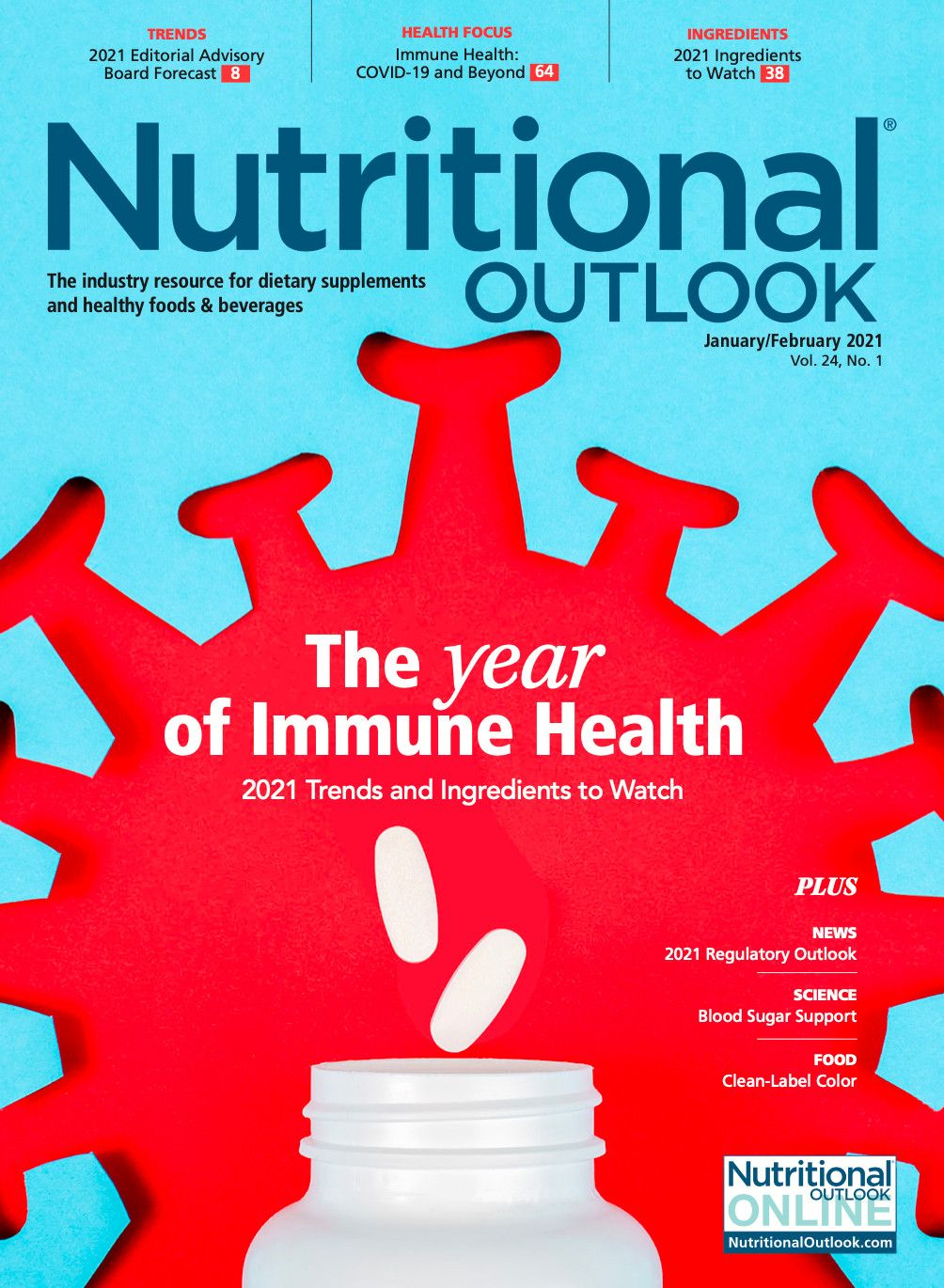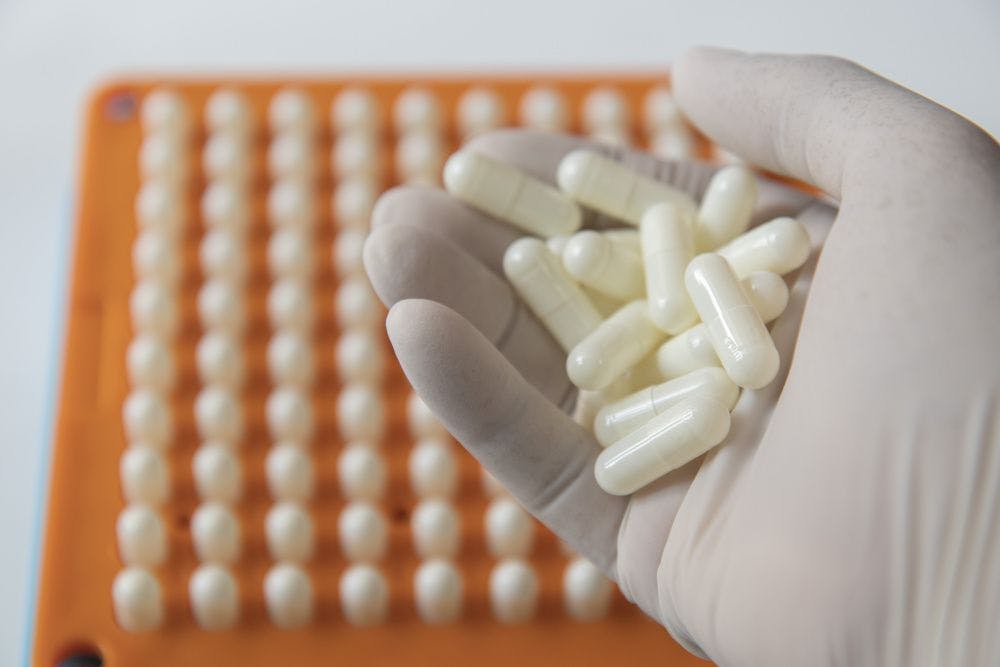Multivitamins sales skyrocketed during COVID-19. What about in 2021? 2021 Ingredient trends to watch for food, drinks, and dietary supplements
Multivitamins saw skyrocketing sales during the COVID-19 pandemic. Experts discuss expectations for 2021 and how multivitamins will continue to evolve.
PHOTO © VIKTORIIA - STOCK.ADOBE.COM

As the mainstream-friendliest of dietary supplements, multivitamins are recognizable, easy to understand, and the perfect point of entry for new supplement users. So when the COVID-19 pandemic drove consumers to supplement “aisles” in search of health support, it’s not surprising that for many, a multivitamin was the first stop.
We’re not talking small gains, either. According to data provided by SPINS (Chicago) on the U.S. mainstream dietary supplement channel during the 52 weeks ending November 29, 2020, multivitamins saw double-digit sales gains across the board: women’s multivitamins were up 19.6% to $474 million, men’s multivitamins were up 33.7% to $229 million, and children’s multivitamins were up 37.2% to $306 million.
Surveys sponsored by the Council for Responsible Nutrition (CRN; Washington, DC) in 2020 also reflect this increase. For instance, a survey conducted by Ipsos on more than 2000 U.S. adults to determine how consumers who already use dietary supplements changed their supplementation routines during the COVID-19 pandemic found that of the top 10 supplements that supplement users increased use of during the pandemic, multivitamins were at the very top. The results showed 59% of supplement users had increased their overall multivitamin intake. Meanwhile, CRN’s annual Consumer Survey on Dietary Supplements, conducted by Ipsos on more than 2000 U.S. supplement users and non-users, also found significantly increased multivitamin use—74% increased usage. Gains were seen across age groups, including those aged 18-34 (75% increased multivitamin use), 35-54 (74% increased use), and 55+ (74% increased use).
“COVID brought a surge in demand for multivitamins as consumers prioritized wellness and health,” says Francis Lau, PhD, FACN, director of science and regulatory for supplements brand Olly. He cites market research from the IRI Database on the mainstream market for the year ending December 13, 2020. “Multivitamin category sales saw 22% growth in dollar sales, year-to-date versus year-ago, with kids’ and women’s multivitamins contributing the most growth—$83 million and $85 million, respectively.” Olly itself saw its multivitamin sales grow 70%, or $34 million, in 2020.
New users were an exciting part of that growth, Lau confirms. “We have seen the category grow, gaining new users. Already, 85% of households were buying vitamins, and we saw that increase to 90%. We also saw frequency increase. So existing buyers are buying more, and new buyers are coming in. People take vitamins to stay healthy, which became even more important in 2020. Vitamins became an essential category for people to have on hand; they never wanted to run out.” More parents also gave multivitamins to their children. “Children’s multivitamins have seen some of the biggest lifts in demand behind immune-boosting supplements, and we expect the trend to continue as parents seek ways to strengthen their children’s immune system and overall health,” he says.
Tamara Bernadot, chief nutrition officer for personalized-nutrition company Persona Nutrition, says the same. “I do believe more people decided to try vitamins and supplements in 2020 compared to years past. We did a national online survey of 1,000 U.S. adults ages 35 and older (via Wakefield Research) midway through 2020 and found that almost half (47%) of respondents said it was more important to take a daily multivitamin in 2020 than it was in 2019. And, 53% of the respondents were taking or were considering taking multivitamins to support their immunity at this time.”
Many wonder whether this high level of growth for multivitamins can be sustained in 2021. It’s unlikely, Lau says. “While growth is expected to continue next year, the same high double-digit growth that was driven by COVID is not expected in 2021.”
One obvious strategy to ensure consumers remain invested in multivitamins is to give them what they want.
For instance, Bernadot says, “There are definitely health-conscious consumers who know that a high-quality multivitamin contains efficacious levels of vitamins and nutrients and that there are options that can align with their dietary preferences—like being free from artificial colors or additives or made with vegetarian ingredients. We are finding that our personalized-nutrition customers want more-advanced multivitamins and overall nutrition programs in general.”
Consumers are becoming more educated about multivitamins and know that formulas now go beyond the basic. “Today’s multivitamins are more sophisticated, with added benefits tailored to specific health needs and life stages,” says Lau. “For example, multivitamins with brain, eye, heart, as well as bone and joint health benefits are available for consumers to choose from.”
Sophistication also extends to the ingredients multivitamins are embracing. Lau says he’s seeing immune-health ingredients, botanicals, fish oil, and probiotics remain popular in multivitamins, with sleep-enhancing and stress-reducing ingredients also more commonplace. As for Bernadot, “The popular ingredients today include vitamin D, vitamin C, zinc, and selenium.” Persona also offers phytonutrients such as astaxanthin and zeaxanthin for antioxidant support.
The multivitamins Olly and Persona both launched in 2020 exemplify some of these trends. Last spring, Olly launched an Adult Multi + Probiotic gummy. It also launched a softgel multivitamin called Ultra Women’s Multi + Omega-3, which is a daily multivitamin for immune health, brain health, heart support, and energy.
Says Lau: “There will always be consumers in various stages of their health and wellness journeys. While some consumers may be satisfied with more-basic formulas, as consumers learn more about nutrition and ingredients they may be searching for advanced products to meet their individual needs. Some consumers may be looking for products that can do the work of multiple supplements, which has contributed to the success of Olly Adult Multi + Probiotic and the Olly Women’s Ultra Multivitamin.”
Bernadot says that as a personalized-nutrition company, Persona has the ability to evaluate its own customers’ assessments to determine their needs. “Being a personalized-nutrition company that uses a free online assessment for each customer, and on-staff nutritionists as customer-care specialists, we’re able to listen closely to our subscribers’ needs and wants when it comes to their daily nutrition. By listening to our customers, we’re able to formulate new supplements very quickly.”
For instance, she says, “we heard from our customers that they wanted supplements that were easier to swallow, with more vegetarian options.” So in 2020, the company introduced a Foundation Formula multivitamin delivered in a purple veggie capsule that’s not only sustainably sourced from purple carrots but that is also easier to swallow. It also introduced a reformulated, high-potency multivitamin in a vegetarian softgel for bariatric customers.
Multivitamin shoppers also want convenience. E-commerce wins here. “With more consumers staying at home, there has been a digital shift in multivitamin purchases in 2020, which is expected to continue. Direct-to-consumer supplement sales have seen fivefold growth in 2020, driven by e-commerce. Delivery and subscriptions could continue to set these channels apart versus traditional mass retail,” says Lau, citing data from Nutrition Business Journal’s 2020 Supplement Business Report.
This is also where delivery solutions like personalized subscriptions have a lot to offer. “Going to a crowded pharmacy to pick up a bottle of supplements isn’t as appealing as taking a brief online assessment and getting a curated pack of personalized vitamins delivered directly to your doorstep,” Bernadot says.
As multivitamins become the starting point for new supplement users, they also may lead those users to explore the benefits not only of multivitamins but of other beneficial dietary supplements, expanding their supplement horizons. Bernadot says, “We see a significant opportunity to educate consumers about how their bodies might need more than a multivitamin to address specific health concerns. Multivitamins were created in the 1940s during World War II to help address food shortages during this time. Nearly 80 years later, nutrition research and tech advances are opening the door to show that very common health concerns—like sleep, stress, energy levels, etc.—can be supported by daily nutrition and more than what a traditional multivitamin can deliver. For instance, trying to tackle sleep issues with a multivitamin may not be the best route, but adding a multivitamin plus a melatonin and herbal rest blend may be more beneficial. As more consumers are educated about how nutrition impacts their health and specific concerns that can be impacted by lifestyle factors, I predict we’ll see more combination products—like multivitamins co-packed with other nutrients.”
2021 Ingredient Trends to Watch for Food, Drinks, and Dietary Supplements:
Vitamin C
Melatonin
Vitamin D
CBD
Elderberry
Mushrooms
Ashwagandha
Multivitamins
Protein
Probiotics

Prinova acquires Aplinova to further increase its footprint in Latin America
April 7th 2025Prinova has recently announced the acquisition of Brazilian ingredients distributor Aplinova, which is a provider of specialty ingredients for a range of market segments that include food, beverage, supplements, and personal care.

























